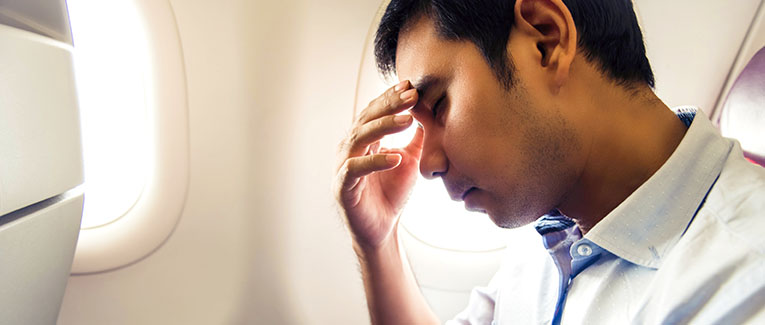
Jet lag is a disorder that stems from international travel. It is a temporary sleep problem that could affect you if you are traveling quickly across multiple time zones.
Your body has a typical circadian rhythm, also known as your internal clock. The function of this clock is to tell your body when to stay awake and when to go to sleep. Since your body’s internal clock is synced to your home country and your normal schedule, you will experience jet lag when you shift time zones. What do you do when your body tells you it’s 11 p.m. and time to go to sleep, but your watch says it’s 8 a.m. and time to start the day?
Jet lag causes several problems such as daytime fatigue, feeling unwell, and difficulty in staying alert. But, the symptoms of jet lag are temporary. Still, jet lag can interfere with your vacation or business trip. Here are some tips by which you can avoid jet lag while traveling to the U.S.
Alter your eating patterns
Prepare yourself well in advance by shifting your eating and sleeping patterns to match the timing in the U.S.
Sleep late
Go to bed a couple of hours later each night for a few days before you leave for the U.S. Even when you first land in the U.S., your body clock may tempt you to follow the sleep patterns of your country of origin. But you should coax your body to follow local time zone patterns.
Get adequate rest
Try to get adequate rest while on the flight. This will keep your body well prepared for transitioning into your destination’s time zone. It is a good idea to stay hydrated, especially while you are on a flight and are a senior citizen.
Avoid caffeine
Avoid the intake of coffee and other caffeinated drinks. Stop caffeine drinks around 12 to 14 hours before boarding the flight to the U.S. Caffeine can have a disruptive effect on your sleep. So, the more caffeinated you are, the harder you will find it to fall asleep. So, the symptoms of jet lag could be more noticeable.
Arrive a few days early
Try to arrive a few days early at your destination, if you can. This way, your body gets a chance to adjust to the change before you have to be fully functional and productive. Avoid heavy meals and any heavy exercise when you are close to bedtime. You might want to use earplugs and blindfolds. This will help dampen noise and block unwanted light while you sleep.
Move outdoors
Avoid staying indoors at the destination. The more you expose yourself to sunlight, the more powerfully it will act as a stimulus to regulate your internal clock.
Don’t forget to take your vitamins
If you are on a long-haul flight to the U.S., you could be at risk of infection, either viral or bacterial (or both). Take an immunity booster or vitamin C. This will help you fight infections that could be passed on from fellow passengers.
Avoid stress
Air travel could be stressful for you. Try to stay calm and composed so that you feel in control of yourself.
Jet lag can be an irritant and play spoilsport with your routine when traveling to the U.S. But, these tips mentioned above can help you cope up with jet lag.

